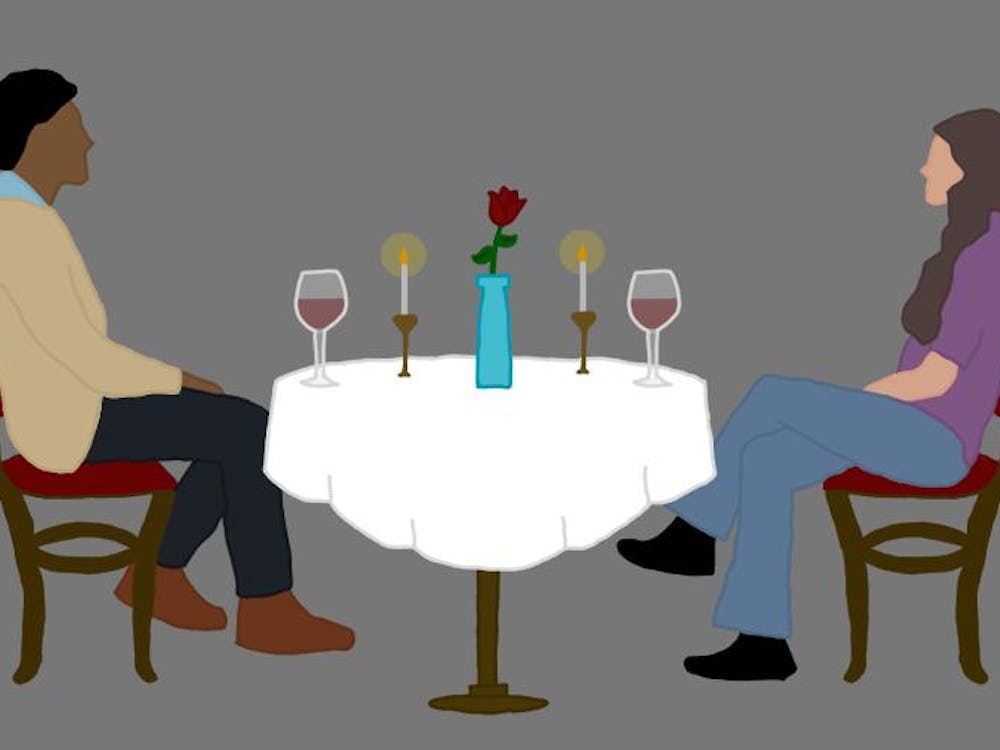Thomas Jefferson fought to make America a democracy, writing that “all men are created equal” in the Declaration of Independence. At his University, Queer and Allied Activism is pursuing this goal.
Queer and Allied Activism broke off from the Queer Student Union in 2005. Though QSU provides a cultural and social outlet for lesbian, gay, bisexual, transgender and queer students, some of its members wanted to see the organization play a more active political role. Thus, QuAA was formed.
QuAA’s main goal is to advocate for LGBTQ rights, especially within the University community. According to QuAA President Heather Welborn, a fourth-year College student, the organization’s two core objectives currently are to create a queer studies minor at the University and to establish domestic partner benefits for University faculty. On a lesser scale, QuAA also is working to diminish the “not gay” chant sometimes heard during the “Good Ol’ Song.”
Along with these objectives within the University community, QuAA members take action regarding broader issues. Members of the organization are protesting the lack of LGBTQ hate crime legislation in the commonwealth and also traveled to Washington, D.C. to support repealing the “Don’t Ask, Don’t Tell” policy of the United States military. QuAA treasurer Alvin Valdez, a fourth-year College student, said the Washington, D.C. trip “was an experience to see how our system of government worked on a ground level, which to be honest, does not work well.”
Because of the political nature of its activism, QuAA sometimes encounters people who disagree with the organization’s views. QuAA Publicity Chair Vennesa Yung, a fourth-year College student, said QuAA members are “open to both positive and negative comments” and are happy to discuss any of their opinions.
The club’s views are held not only by members of the LGBTQ community, but also by allies. The only way equality truly can be achieved is through the support of allies, because equality starts with interaction between different groups, Welborn said, noting that both straight and LGBTQ community members must come together and agree that everyone deserves rights before rights actually will be granted. About half of QuAA’s executive board identifies itself as straight, as does a quarter of the organization as a whole, she added. QuAA also encourages anyone to join, regardless of whether they define themselves as LGBTQ.
QuAA holds weekly meetings in which members discuss upcoming issues and occasionally watch movies with activist undertones. More than 300 people receive e-mails from QuAA’s listserv, although only about 30 are active members, Welborn said.
Some topics discussed include domestic partner benefits and a queer studies minor. Welborn said the University lags behind other national colleges and universities because it lacks domestic partner benefits and a queer studies minor.
“[I would] like to see the University step out on its own,” Welborn said. “If we take that first step, other universities will follow.”
The University has the ability to influence other schools, not only in the commonwealth, but also in the country, she added. If the University gives benefits to its LGBTQ faculty and offers more options in queer studies, it may become possible for students and faculty at other schools to share the same benefits.
Domestic partner benefits is “one of the things [the University has] not been able to offer because of state regulations,” University spokesperson Carol Wood said, disputing that the University is discriminatory. She also noted that University President John T. Casteen, III has “encouraged people to talk to their state legislators so people at the grassroots level can influence state legislators.”
Welborn stated in an e-mail that QuAA “would hesitate attaching sole blame [for the lack of domestic partner benefits] to either the University or the state of Virginia” but added that “the University should take a stand on the issue of offering Domestic Partner benefits rather than using the regressive laws of the state of Virginia as their protection or excuse for lack of action.”
Welborn also stated that QuAA has been involved with lobbying efforts seeking to persuade the Virginia legislature regarding domestic partner benefits.
The University’s lack of a queer studies minor can also serve as a disadvantage to students applying to graduate schools in that field, Welborn said. These students might not feel as confident as students with a queer studies minor when they apply to graduate school, she said, and must demonstrate to graduate schools that they have done outside research in order to compete with students who have such a minor.
Currently, the University has enough courses to create this minor, Welborn said, noting all it needs is a department, most likely the anthropology department or the studies in women and gender department, to create an introduction to queer theory course to solidify the minor. College Dean Meredith Woo did not return an e-mail for comment before this page was sent to the presses.
Welborn said she thinks it will be at least three years before the University creates a queer studies minor and much longer before the University offers domestic partner benefits to faculty members.
Members of QuAA said while the culture at the University is growing more accepting of the LGBTQ community each year, there still remains a sizable percentage of the University community that is discriminatory toward its LGBTQ members. Most do not outwardly express their biases, though, and many others are simply ambivalent about the topic, Welborn added.
The experience of an LGBTQ student at the University depends on where they live and whether or not they are an activist, according to Welborn.
“The University is trying to be accommodating to LGBT students,” Welborn said, noting, though, that those same students sometimes feel like “second-class citizens,” which makes it “hard to feel like the University is really your home.” Welborn said she has observed that LGBTQ couples are hesitant to show signs of affection around Grounds and will avoid holding hands on the Corner, fearing hateful glances and possible outbursts against them.
QuAA uses theater as a way to encourage tolerance at the University as well as to introduce social justice issues and attract potential members.
Every year, QuAA performs “Live Homosexual Acts,” during which members deliver monologues written by queer students at the University. Some of these monologues focus on domestic violence, which tends to be ignored in the LGBTQ communities, Welborn said. Recently, QuAA held the Laramie Project, a play about reactions to the 1998 murder of gay college student Matthew Shephard, at the University Chapel. The play received an outpouring of support from the University community, and several hundred people came out in protest of a planned demonstration by the Westborough Baptist Church, though members of the church ultimately did not attend.
Next semester, QuAA will host a statewide conference for student groups across Virginia from March 27 to 29, Welborn said. The conference will teach members of these groups how to write letters promoting LGBTQ rights and how to hold non-violent protests. The conference will also be open to the University community as a whole.






